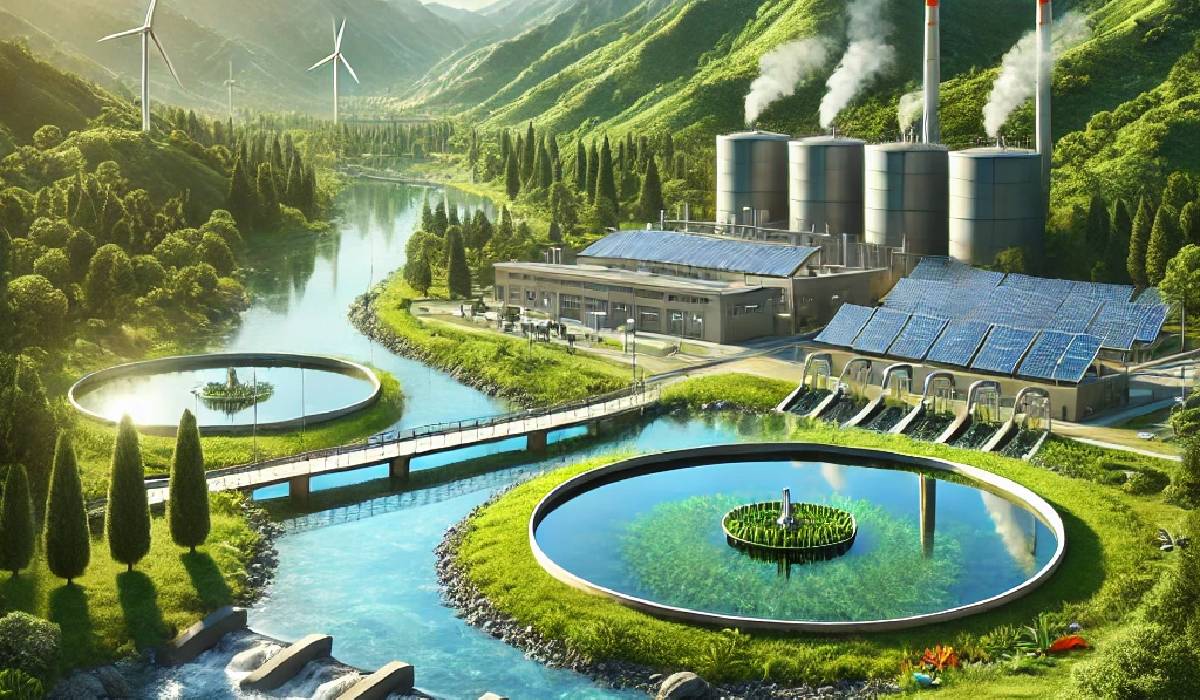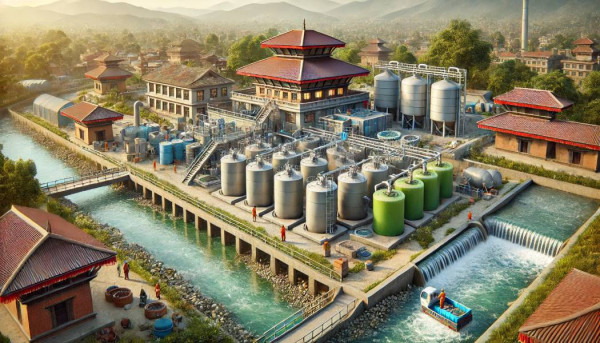News & Blogs
The Role of Wastewater Management in Environmental Protection: A Sustainable Approach

Wastewater management plays a pivotal role in environmental protection, ensuring the preservation of ecosystems, human health, and water resources. The rapid pace of urbanization and industrialization has exacerbated the risks associated with untreated wastewater, leading to severe consequences such as waterborne diseases, habitat degradation, and soil contamination. Recognizing these challenges, CivilTech is committed to implementing innovative wastewater management solutions tailored to Nepal’s unique environmental and infrastructural needs. This article explores the environmental benefits of proper wastewater treatment and underscores its significance in sustainable development.
The Importance of Wastewater Management
Wastewater management encompasses the collection, treatment, and reuse of water originating from households, industries, and agricultural activities. In the absence of appropriate treatment, hazardous pollutants—including pathogens, chemicals, and microplastics—enter water bodies, thereby disrupting ecosystems and posing substantial public health risks.
Key Statistics:
- Over 80% of global wastewater is discharged untreated (UNESCO).
- In Nepal, rapid urban expansion has placed immense pressure on outdated sewage systems, exacerbating water pollution issues.
Environmental Benefits of Wastewater Management
1. Prevention of Water Pollution
Untreated wastewater significantly contaminates freshwater sources, adversely affecting aquatic life and diminishing the quality of potable water. Advanced wastewater treatment technologies, such as biological filtration and membrane filtration systems, effectively remove harmful toxins, ensuring compliance with environmental safety standards before discharge.
2. Conservation of Water Resources
In water-scarce regions, the reuse of treated wastewater offers a sustainable solution for irrigation, groundwater replenishment, and industrial cooling processes. By alleviating the dependency on natural water reserves, wastewater recycling contributes to long-term water sustainability.
3. Reduction of Greenhouse Gas Emissions
Organic waste decomposition in wastewater generates methane, a potent greenhouse gas. Modern wastewater treatment facilities are equipped with methane capture technology, enabling its conversion into renewable energy, thereby reducing overall emissions and promoting environmental sustainability.
4. Protection of Biodiversity
The presence of heavy metals, pesticides, and other contaminants in untreated wastewater disrupts aquatic ecosystems. Effective wastewater treatment mitigates these pollutants, preserving biodiversity and ensuring ecological balance.
Challenges in Wastewater Management in Nepal
Despite its evident benefits, wastewater management in Nepal faces several challenges, including:
- Infrastructure Deficiencies: A lack of centralized treatment facilities in many areas hampers effective wastewater management.
- Financial Constraints: The high initial investment required for establishing wastewater treatment plants often delays project implementation.
- Limited Public Awareness: Inadequate knowledge regarding safe wastewater disposal practices poses a significant obstacle to sustainability efforts.
CivilTech’s Sustainable Wastewater Management Solutions
CivilTech is dedicated to addressing Nepal’s wastewater management challenges through innovative and sustainable solutions, including:
- Decentralized Treatment Plants: Compact, cost-effective systems designed for both urban and rural communities.
- Eco-Friendly Technologies: Implementation of solar-powered aeration systems and constructed wetlands for natural wastewater treatment.
- Community Training Initiatives: Conducting workshops on wastewater reuse and pollution prevention to promote awareness and sustainable practices.
Case Study:
In Pokhara, CivilTech successfully implemented a modular wastewater treatment plant that reduced lake pollution by 60%, significantly contributing to the restoration of local fisheries and aquatic biodiversity.
The Future of Wastewater Management
The future of wastewater management lies in technological advancements such as artificial intelligence-driven monitoring systems and nutrient recovery processes, which enable the conversion of wastewater sludge into valuable fertilizers. The commitment of both governmental and industrial sectors to prioritizing wastewater management policies and investments will be essential in scaling these sustainable technologies.
Effective wastewater management is imperative for environmental protection and sustainable development. CivilTech remains committed to advancing Nepal’s water sustainability efforts through the implementation of cutting-edge engineering solutions. A collective approach involving government agencies, industries, and communities is essential to ensuring the long-term success of wastewater management initiatives.
For more information on how CivilTech can assist in wastewater management solutions, please visit our website or contact us directly.


-1742900752.jpg)
